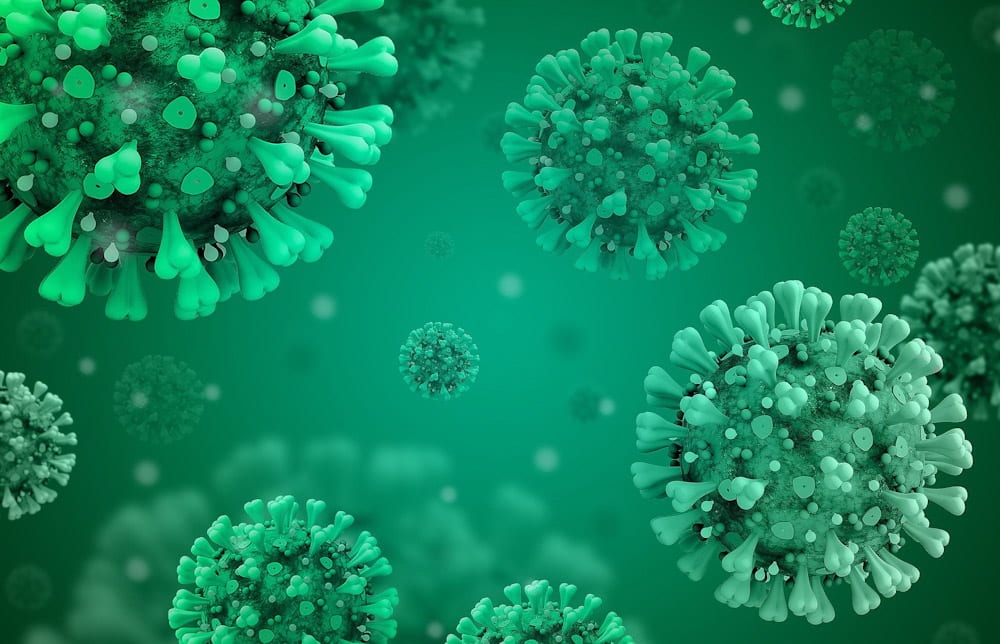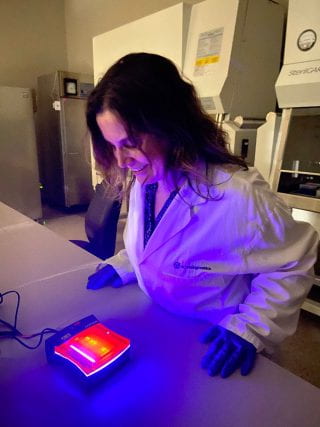Chemical Engineering Professor Helps Create Quick COVID Antibody Test

When the coronavirus outbreak began, Shannon Servoss was working to develop a rapid, antibody test kit for the flu while on a year-long sabbatical from teaching. That changed in February 2020, when Italy became the European epicenter of the worldwide pandemic.
“When they were getting hit hardest in Italy, we realized we had to do something,” Servoss said.
Kevin Clark, CEO of international biomedical company NOWDiagnostics, asked her to help develop a COVID-19 antibody test kit. Servoss, whose work as an associate professor of chemical engineering and co-director of undergraduate research focuses on biomedical applications, jumped at the opportunity.
The original influenza project—very early in development—had strong potential for publication, intellectual property protection and funding opportunities, but it was still a few years away from being on the market. By shifting focus to a COVID-19 antibody kit, Servoss and NOWDiagnostics had a chance to work on a fast-paced, vitally important project, and demonstrate how researchers and industry can respond to an international health emergency.
Servoss and NOWDiagnostics worked on a kit that could detect viral antibodies present in the body after two to three months of infection. The test itself is an in vitro lateral flow immunoassay — a diagnostic procedure that confirms the presence of certain biomarkers in liquids. It is formulated to detect SARS-CoV-2 antibodies in human blood. A tiny drop of blood is applied to the test strip and the results are provided after 15 minutes. The strip will show one or two lines indicating a negative or positive result.
They had a working test by April 2020. Initial sensitivity and specificity components were looking good at this point, Servoss said.
In May 2020, the team began full-scale manufacturing and submitted the paperwork to the United States Food and Drug Administration (FDA) for an Emergency Use Authorization. As of this writing, approval is still pending in the U.S., but the kit has received the Conformité Européene mark of approval in Europe. Clinics and hospital emergency rooms have access to it in 28 countries around the globe. Clinical trials are also under way in the U.S.
The rapid test kit allows clinics to quickly determine whether patients have COVID-19/SARS-CoV-2 virus antibodies. As more people get the vaccine, this knowledge will ensure that infection risks stay low. NOWDiagnostics also plans to offer the rapid test kit to the general public for at-home use. Availability will be determined by FDA approval and customer demand.
The test kit allows clinics to quickly determine if patients have COVID-19 antibodies.
Servoss discusses her work on a recent episode of Short Talks From the Hilll
Servoss said the collaborative experience she gained at NOWDiagnostics has led to newly funded projects in her lab, including the development of COVID-19 detection tests and future collaborations with the company. The experience demonstrated the importance of being adaptable when it comes to research.
“I think that my advice to scientists, especially those looking at the academic field, would be to be nimble… It’s important to be able to shift your research and the direction necessary for the current environment, whether that’s the funding environment, if there’s a global pandemic, if it’s climate change, whatever it may be, being able to shift your research, for the needs that we have at the moment is really important.”





You must be logged in to post a comment.